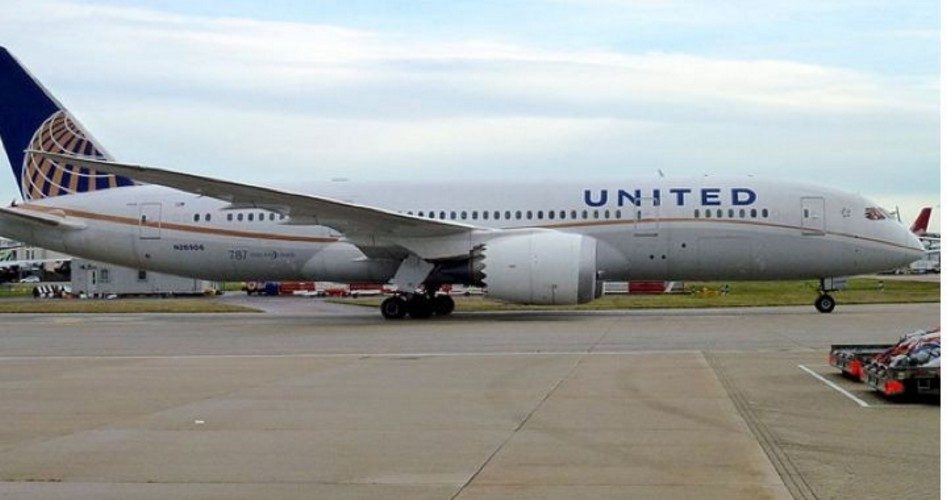
It is not new for government action to cause a problem, then offer more government regulation to solve the problem. We see this with government price controls, which invariably result in shortages, with government-imposed rationing then offered as the solution to shortages. Government price controls on wages during World War II led to businesses offering employer-provided health insurance, which predictably drove up the price of healthcare in the United States. Today, more government involvement in healthcare is suggested as the solution to the problem mostly caused by government action.
What does this have to do with the public relations fiasco suffered by United Airlines? Most of us have seen the videos and heard the jokes resulting from the incident in which government officials, acting on behalf of the airline, violently removed a paying customer from a flight bound for Louisville, Kentucky.
When four United employees needed to get to Kentucky to work another flight, United asked four passengers to voluntarily take a later flight, attempting to entice them with an $800 travel voucher. It is not unusual to get passengers to give up their seats — it usually is resolved without such infamous incidents as what happened at the Chicago airport. In this case, of course, the passengers were already seated.
One paid customer, a medical doctor, was finally ordered off the flight, and when he refused (he argued that he had patients he needed to see back home), officers of the Chicago Department of Aviation physically removed the man, bloodying him in the process.
It has been a public relations nightmare for the airline. Their stock has fallen almost three percent, losing $600 million in market value.
Still, many Americans are not content to let the marketplace (and perhaps even the civil courts) mete out its own form of punishment. They want the government to do something to ensure nothing like this happens again.
The problem is the government already has done “something,” and the United Airlines episode is the logical result. It was the federal government itself that allows the notorious “over-booking” of flights. According to the law, “Airline flights may be over-booked, and there is a slight chance that a seat will not be available on a flight for which a person has a confirmed reservation.” At this point, airline personnel will ask for volunteers to surrender their seats in exchange for compensation “of the airline’s choosing.”
Under a free market situation, an airline could certainly stipulate that they can remove passengers — even those already seated — but once word got out that this was that airline’s policy, other airlines without such a policy could possibly gain more customers.
The question has been raised — why did United not just increase its offer from $800 in travel vouchers until someone stepped forward and took them up on it? Here is where the federal regulations stipulate that there is a cap on what the airline has to pay if it removes someone from the flight. In other words, take it or leave it. And if you will not move voluntarily, we will bring in legal authorities, who will remove you by force.
Certainly this seems rather unfair to the average person. After all, the passenger who does not wish to leave evidently values his seat on the flight more than he values the offered “travel voucher.” Not surprisingly, Americans who have seen the videos, or have heard about what happened, have reacted negatively toward United Airlines.
But when one thinks about it, is that not what happens with eminent domain? The government will offer what they contend is “just compensation” to get someone to leave his property, but the question of what is enough compensation will vary from person to person. This is particularly notorious when the government seizes privately owned land, not just for some “public use,” as is required by the Fifth Amendment of the U.S. Constitution, but to then turn it over to a private developer at a price below what the property owner was willing to sell. Forcing someone to sell their property below a price they are willing to accept might even be termed theft. After all, if someone offered a person $5,000 for a brand-new Lincoln Town Car, and somehow forced them to turn it over at that price, we would say a theft has occurred.
With United Airlines, one can at least choose to not fly with them. But in the case of the government, one has no choice. As poorly handled as the United incident was, it is not a monopoly situation, as one faces in dealing with government agencies.
Even with a private airline, government regulations can distort the free market. Had United not been able to rely on the government price control, they would have no doubt increased their financial inducements to the point that someone would have left the plane without being dragged off the plane. As it was, however, the government price control created a shortage of available volunteers. Apparently, the $800 travel voucher offered was somewhat below the true market price to bring forth some volunteers.
Some have rightly argued that United was well within its legal contractual rights to deny a seat to some of its passengers, so as to get its employees onto the plane. The free market, however, will cause them to pay dearly for exercising that legal right. In the future, passengers who hear about such an incident might very well skip over a United flight and select another airline. Of course, United could then entice the flying public back onto their planes by offering lower fares than their competitors. Who knows how it will how shake out in the end?
But when it comes to dealing with a government agency, what can a person do? The old saying, “You can’t fight city hall” is clearly understandable to most of those who hear it. Most of the time, one has no alternative to the “service” provided by the city — a “consumer” cannot just take his “business” elsewhere.
At least, if one has a problem with a city government, it is possible to move to another municipality. As the government becomes larger, however, with states, and then countries, this is not as simple. Finally, if you don’t like the business practice of United Airlines, you can choose another airline. But if we had a one-world government, such as the United Nations, it is rather problematical to buy a ticket to another planet — on any airline.
More competition — whether it be governments or airlines — appears to be the best answer.
Photo of United Airlines plane: Originally posted to Flickr by tagsplanepics-lhr at http://flickr.com/photos/26104073@N06/11780255173>



